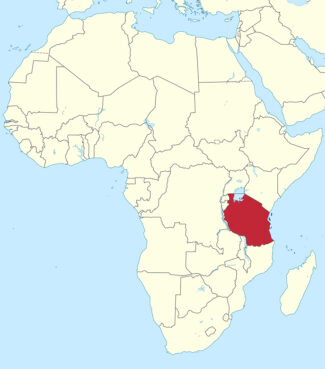NAIROBI, Kenya (RNS) — Some in Tanzania are facing a death sentence for demonstrating against what they see as flawed elections. Some who have been arrested await word on their fate. Hundreds of others died in the protests, according to news reports in recent days, leaving hundreds more to mourn and bury their relatives or to desperately search for the missing.
As Tanzanians headed to the polls on the morning of Oct. 29, youth in Dar es Salaam came out into the streets protesting alleged electoral irregularities, suppression of opposition parties and police harassment, mirroring a mobilization of Generation Z youth against authoritarian regimes in other African cities. The protests quickly spread to other cities and towns. Security forces responded with brutal force, lobbing tear gas at the demonstrators and shooting with live bullets.
On Nov. 1, it was announced that President Samia Suluhu Hassan had garnered 97.66% of the votes cast, defeating 16 candidates from smaller parties. As Hassan was sworn in on Nov. 3, the crackdown against the protests continued, and people were arbitrarily arrested or simply disappeared. Some 300 people have been charged with treason, an offense that carries a death sentence.
Some of those who died in the crackdown, according to Catholic Archbishop Jude Thaddaeus Ruwa’ichi of Dar es Salaam, were not protesting, but were shot inside their houses by government agents.
Speaking in Dar es Salaam at a memorial Mass for victims, the archbishop said, “They were hunted and killed inside their homes,” adding: “That cannot be explained at all. That cannot be forgiven.”

There is no official death toll, but the Catholic Church said hundreds were killed. The main opposition party, the Party for Democracy and Progress, popularly known by its Swahili name, Chadema, said it was as high as 2,000. “The government has not given the official numbers. It has not condemned the killings or admitted the truth,” the Rev. Charles Kitima, the general secretary of the national Catholic bishops’ conference, told Religion News Service.
Religious leaders who have voiced concerns over government excesses and who call for reforms are also being targeted.
Kitima, a longtime critic of the government, was attacked in April after attending an interfaith meeting called to discuss electoral irregularities. On Friday (Nov. 7), the police ordered Bishop Josephat Gwajima, an influential preacher and the leader of Ufufuo na Uzima Church, a Pentecostal church in Dar es Salaam, and his deputy, Bishop Machumu Maximillian Kadutu, to surrender to the police for questioning. Gwajima’s church was deregistered last year after he criticized the government for human rights abuses.
Eleth Mtaita, a Lutheran pastor, was arrested Oct. 24 and accused of inciting his congregation. Armed men stormed his home, threatened his family and took the pastor away.
Kitima warned that the church would not be silenced. “It can only suffer torture,” said the priest. He called on the government to offer a proper response to the demands of the citizens. “The bishops will be meeting to start a program of healing for the nation,” he said.
Formed in 1964 in a union between the mainland Tanganyika and the Indian Ocean archipelago of Zanzibar, Tanzania is best known for its game parks and Mount Kilimanjaro, Africa’s highest peak. Approximately 63% of its nearly 67 million residents are Christians, and an estimated 34% are Muslims. African traditional religions account for the rest of the country.
Tanzania had been a largely peaceful and stable state until the most recent elections. Hassan, a Muslim from Zanzibar, had served as vice president since 2015 and assumed the highest office in 2021 after the death of her predecessor, President John Pombe Magufuli.
Under Hassan, abductions, arbitrary arrests and even the killing of opposition leaders have become more common. In the current election cycle, the government had barred the main opposition parties and arrested Tundu Lissu, the leader of Chadema, who has been charged with treason. Luhaga Mpina, the leader of ACT-Wazalendo, the second largest party, was disqualified a month before the elections.
The government has announced its intention to launch a reconciliation process to build peace, unity and stability, but Ruwa’ichi warned that there can be no peace without justice.
“Justice is the foundation of peace. I repeat, justice is the true foundation of peace,” said the archbishop while calling on church followers to pray for God’s mercy and wisdom and to stand ready to do justice in their country.
Original Source: